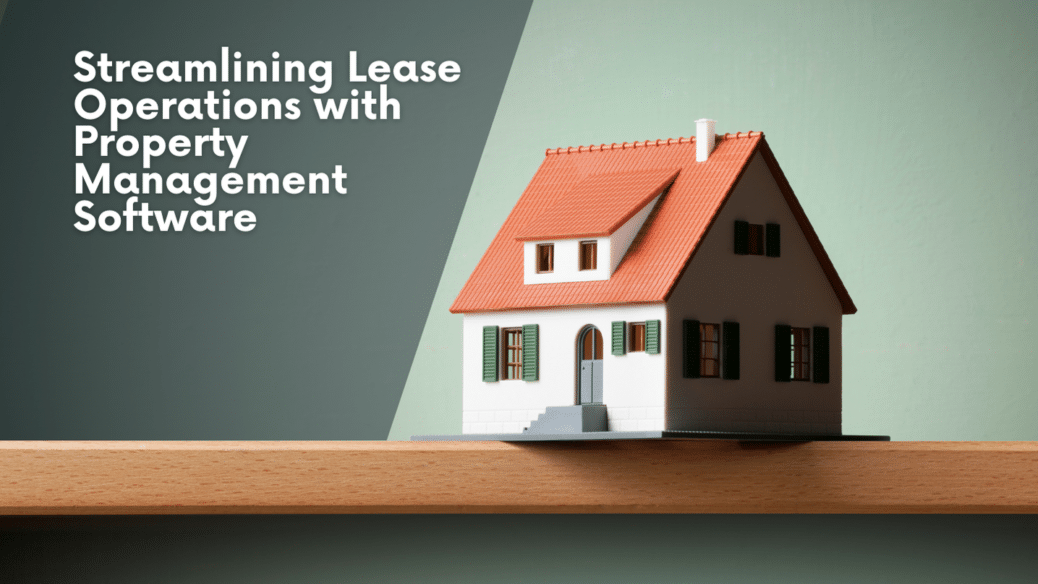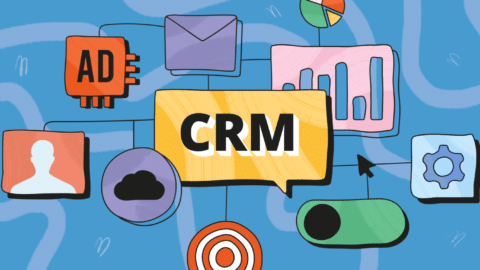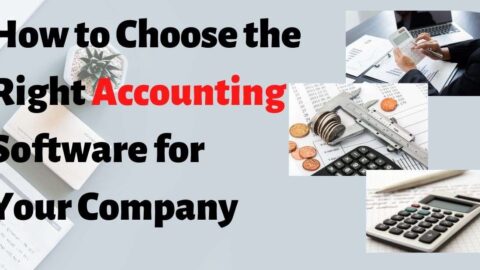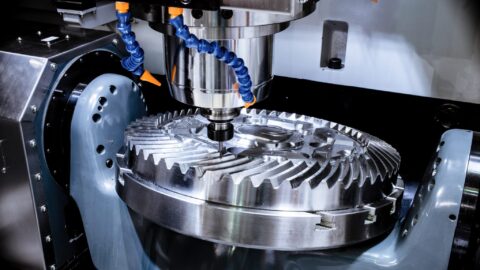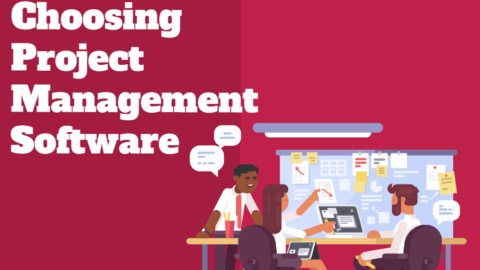Streamlining Lease Operations with Property Management Software
The real estate industry is undergoing a radical transformation due to the digital revolution. And Property management is not exempt from this change and is actively embracing it. To navigate the complex world of lease operations, property managers are turning to cutting-edge technological solutions. In this extensive piece, we will examine how property management software is revolutionizing lease operations and uncover its wide range of advantages.
Table of Contents
The Evolution of Property Management
The historical backdrop of property management is characterized by labor-intensive administrative tasks, stacks of paperwork, and manual record-keeping. Because property managers would often find themselves buried under a mountain of paperwork, dealing with lease agreements, maintenance requests, and tenant communication. These traditional methods were not only time-consuming but also prone to errors, leading to tenant dissatisfaction and operational inefficiencies; that’s why fillable templates like orea form 400 became popular – they offered an efficient solution to avoid such complications.
The property management industry has been revolutionized with the introduction of property management software. This technology has completely transformed the traditional, paper-based methods that were once employed. Now, property managers can take advantage of various digital tools that automate and centralize essential tasks. This empowers them to efficiently oversee properties and deliver exceptional service to tenants.
Unveiling the Key Features of Property Management Software
Modern property management software boasts an array of features that have a profound impact on lease operations. These features not only simplify tasks but also enhance the overall management experience:
1. Lease Management Made Effortless
Firstly, lease management is at the heart of property management software. It allows property managers to:
- Electronically create and store lease agreements, reducing the risk of document loss or damage.
- Set up automated rent reminders and streamline payment collection, ensuring consistent cash flow.
- Keep track of lease expiration dates and renewal options, preventing any lapses in occupancy.
- Generate comprehensive lease-related reports with a few clicks, simplifying financial analysis and compliance.
2. Elevating Tenant Communication
To maintain a peaceful landlord-tenant relationship, effective communication is crucial, and property management software facilitates this by:
- Sending automated notifications and announcements, keeping tenants informed about important matters.
- Allowing tenants to submit maintenance requests online, simplifying the process and ensuring prompt attention to property issues.
- Providing a secure platform for tenants to pay rent online, enhancing convenience and reducing payment-related disputes.
3. Financial Management Excellence
Property management software streamlines financial management with features that include:
- Online rent collection and payment processing, reducing the reliance on physical checks and cash.
- Real-time expense tracking and reporting, offering property managers a clear view of financial health.
- Simplified tax management and reporting, ensuring compliance with tax regulations.
- Generating financial statements and forecasts, aiding in better financial planning and decision-making.
4. Effortless Maintenance and Repairs
Property maintenance is a critical aspect of lease operations, and property management software simplifies it by:
- Allowing tenants to submit maintenance requests digitally, ensuring quick response times and efficient issue resolution.
- Scheduling and tracking repair tasks, preventing delays and minimizing property damage.
- Maintaining a detailed maintenance history for each property, aiding in long-term maintenance planning and budgeting.
5. Document Storage and Management
Property managers can securely store and manage essential documents like lease agreements, inspection reports, and tenant records in a centralized, digital repository. This eliminates the risk of document misplacement or damage, ensuring easy access when needed.
Advantages of Embracing Property Management Software
The adoption of property management software offers a multitude of advantages, and hence, creating a win-win scenario for both property managers and tenants:
-
Time and Cost Savings
By delegating administrative tasks, property managers can free up valuable time for focusing on strategic business objectives. This not only maximizes their resources but also minimizes operational expenses due to decreased manual labor.
-
Enhanced Tenant Experience
Tenants benefit immensely from the adoption of property management software. The convenience of online rent payments, seamless communication with property managers, and swift resolution of maintenance issues lead to higher tenant satisfaction and increased tenant retention rates.
-
Improved Accuracy and Efficiency
Automation plays a pivotal role in minimizing errors associated with manual processes. Property management software enhances accuracy in lease management, financial reporting, and other critical tasks, resulting in a more efficient operation overall.
-
Informed Decision-Making
Property management software empowers property managers with vital insights through analytics and reporting. By adopting this data-focused approach, property managers are equipped to make well-informed decisions, ultimately optimizing their operations for maximum profitability.
Choosing the Right Property Management Software
For property managers, making the right choice in property management software is absolutely pivotal. This decision can have a profound effect on their daily activities and future achievements. So, consider the following factors when evaluating software options:
-
Scalability
Scalability is a key factor to consider in order to prevent frequent software changes. Ensure the software you select is capable of accommodating your existing property portfolio and can adapt and grow alongside your business.
-
User-Friendliness and Support
Then, choose software that is user-friendly and offers excellent customer support. A straightforward interface and responsive support can greatly ease the transition to the new system.
-
Integration Capabilities
When seeking software, prioritize finding options that effortlessly integrate with your current toolset, including accounting software and marketing platforms. But ensuring compatibility with your existing systems will guarantee a streamlined workflow.
-
Data Security
Prioritize software that places a high emphasis on data security and complies with industry standards and regulations. Protecting sensitive tenants and financial information is paramount.
Conclusion: Embrace the Future of Property Management
Within the real estate industry, property management software has come forth as a game-changer. It has completely transformed lease operations and fundamentally altered how property managers go about their business. The automation of tasks, improved communication with tenants, and enhanced overall efficiency have positioned property managers to deliver exceptional services while optimizing their own operations.
With the right property management software in place, property managers can not only stay ahead of the competition but also navigate the complex landscape of lease operations with ease. Don’t think of it as a simple decision, but rather as a strategic step towards a successful future in property management. Embrace the potential of technology, take that leap, and witness firsthand how it can revolutionize your management practices.
Hello, I’m Cansu, a professional dedicated to creating Excel tutorials, specifically catering to the needs of B2B professionals. With a passion for data analysis and a deep understanding of Microsoft Excel, I have built a reputation for providing comprehensive and user-friendly tutorials that empower businesses to harness the full potential of this powerful software.
I have always been fascinated by the intricate world of numbers and the ability of Excel to transform raw data into meaningful insights. Throughout my career, I have honed my data manipulation, visualization, and automation skills, enabling me to streamline complex processes and drive efficiency in various industries.
As a B2B specialist, I recognize the unique challenges that professionals face when managing and analyzing large volumes of data. With this understanding, I create tutorials tailored to businesses’ specific needs, offering practical solutions to enhance productivity, improve decision-making, and optimize workflows.
My tutorials cover various topics, including advanced formulas and functions, data modeling, pivot tables, macros, and data visualization techniques. I strive to explain complex concepts in a clear and accessible manner, ensuring that even those with limited Excel experience can grasp the concepts and apply them effectively in their work.
In addition to my tutorial work, I actively engage with the Excel community through workshops, webinars, and online forums. I believe in the power of knowledge sharing and collaborative learning, and I am committed to helping professionals unlock their full potential by mastering Excel.
With a strong track record of success and a growing community of satisfied learners, I continue to expand my repertoire of Excel tutorials, keeping up with the latest advancements and features in the software. I aim to empower businesses with the skills and tools they need to thrive in today’s data-driven world.
Suppose you are a B2B professional looking to enhance your Excel skills or a business seeking to improve data management practices. In that case, I invite you to join me on this journey of exploration and mastery. Let’s unlock the true potential of Excel together!
https://www.linkedin.com/in/cansuaydinim/

